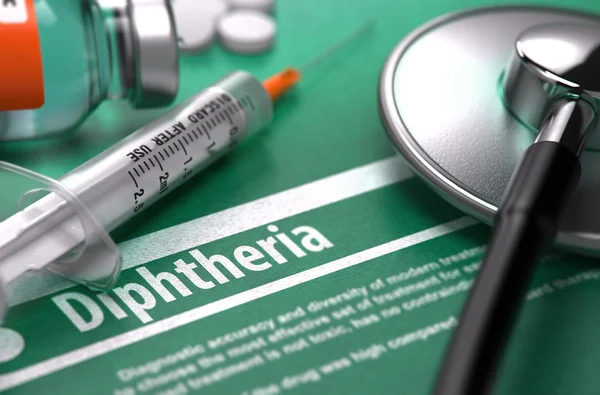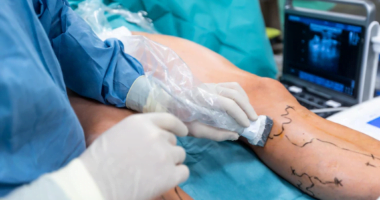Diphtheria, often considered a disease of the past, has not entirely faded into history. Despite widespread vaccination efforts, diphtheria can still rear its head, particularly among adults. In this comprehensive guide, we delve into Diphtheria Signs and Symptoms in Adults, shedding light on its clinical presentation, treatment options, and preventive measures.
Table of Contents
Understanding Diphtheria
Diphtheria is an infectious disease primarily caused by the bacterium Corynebacterium diphtheriae. This bacterium releases a toxin that can lead to severe respiratory and systemic symptoms, making it a potentially life-threatening condition if left untreated.

The Clinical Spectrum
Initial Signs and Symptoms
Diphtheria typically begins with a subtle onset, and its early symptoms may mimic those of a common cold or flu. Here are some Diphtheria Signs and Symptoms in Adults to watch out for:
- Sore Throat: Diphtheria often manifests with a sore throat that worsens over time.
- Fever: Mild to moderate fever is common in the early stages.
- Fatigue: Patients may experience unusual fatigue and weakness.
- Swollen Neck: Swelling of the neck, known as “bull neck,” can occur due to enlarged lymph nodes.
- Difficulty Swallowing: Painful swallowing can make eating and drinking uncomfortable.
Progression of Symptoms
As the disease advances, it can lead to more severe symptoms, including:
- Pseudomembrane Formation: A hallmark sign of diphtheria is the development of a grayish-white pseudomembrane in the throat and tonsils, which can obstruct the airway.
- Respiratory Distress: Breathing difficulties can arise due to the pseudomembrane and airway inflammation.
- Hoarseness: The toxin’s impact on vocal cords may result in a hoarse voice.
- Nasal Discharge: Patients might experience a foul-smelling nasal discharge.
- Systemic Complications: In some cases, diphtheria can lead to serious systemic complications, such as myocarditis or nerve damage.
Diagnosis and Laboratory Findings
Diagnosing diphtheria involves clinical evaluation and laboratory testing:
- Clinical Assessment: Healthcare providers will consider the patient’s history and physical examination findings, especially the presence of a pseudomembrane.
- Culture and Toxin Testing: Swabs from the throat or other affected sites can be cultured for the bacterium, and toxin assays can confirm the diagnosis.
Treatment Approaches

Prompt treatment of diphtheria is crucial to prevent complications and contain its spread. Treatment usually involves a combination of the following:
- Antitoxin Administration: Administering diphtheria antitoxin helps neutralize the toxin circulating in the bloodstream.
- Antibiotics: Intravenous antibiotics like penicillin or erythromycin are given to eradicate the bacteria.
- Supportive Care: Patients may require supportive care, including oxygen therapy and hydration, to manage respiratory distress and fever.
Importance of Isolation
Patients diagnosed with diphtheria should be isolated until they are no longer contagious, typically 48 hours after starting antibiotics.
Prevention Strategies
Preventing diphtheria primarily revolves around vaccination and maintaining good hygiene practices.
Vaccination
- DTP/DTaP Vaccination: The Diphtheria, Tetanus, and Pertussis (DTP) or DTaP (Diphtheria, Tetanus, and acellular Pertussis) vaccine is routinely administered during childhood. Booster doses are necessary to maintain immunity throughout adulthood.
- Td/Tdap Booster: Adults should receive a booster dose of tetanus and diphtheria toxoid (Td) every ten years. The Tdap vaccine, which also includes pertussis (whooping cough) protection, can be given as a one-time substitute for a Td booster.
Hygiene Practices
Practicing good hygiene can further reduce the risk of diphtheria transmission:
- Handwashing: Frequent handwashing with soap and water can prevent the spread of the bacteria.
- Respiratory Hygiene: Covering the mouth and nose when coughing or sneezing helps prevent respiratory transmission.
Uncommon Complications
While diphtheria primarily affects the respiratory system, it can lead to uncommon complications:
- Myocarditis: Diphtheria toxin can damage the heart muscle, leading to myocarditis, a condition that requires specialized treatment.
- Nerve Damage: Neurological complications, such as paralysis, may occur due to the effects of the toxin on nerves.
Expert Opinion on Diphtheria
Dr. James Cherry, a pediatrician and infectious diseases specialist at the University of California, Los Angeles, says that diphtheria is a serious but preventable infection.
- “Diphtheria is a highly contagious disease that can cause serious complications, including death,” Cherry says. “The best way to protect yourself and your loved ones is to get vaccinated.”
- Cherry also emphasizes the importance of early diagnosis and treatment of diphtheria. “If you think you or someone you know may have diphtheria, it is important to seek medical attention immediately,” he says.
Dr. Anne Schuchat, a pediatrician and infectious diseases specialist at the Centers for Disease Control and Prevention (CDC), agrees that diphtheria is a serious infection but is preventable with vaccination.
- “Diphtheria is a vaccine-preventable disease, but it is still a concern in some parts of the world,” Schuchat says. “The CDC recommends that all children and adults get vaccinated against diphtheria.”
- Schuchat also emphasizes the importance of getting a booster dose of the diphtheria vaccine every 10 years. “Immunity to diphtheria can decrease over time, so it is important to get a booster dose to ensure that you are protected,” she says.
Conclusion
Though diphtheria is now a rare disease in many parts of the world, it is not entirely eradicated. Understanding the Diphtheria Signs and Symptoms in Adults, as well as the importance of vaccination and hygiene practices, is essential in preventing its resurgence. Prompt diagnosis and treatment remain the key to managing this potentially life-threatening disease and preventing its complications. Stay informed, stay vaccinated, and stay safe.
Note: This article is written based on scientific evidence found by the coza24.com team. Sources are duly referenced with keywords hyperlinked to source websites and are clickable for reference.









